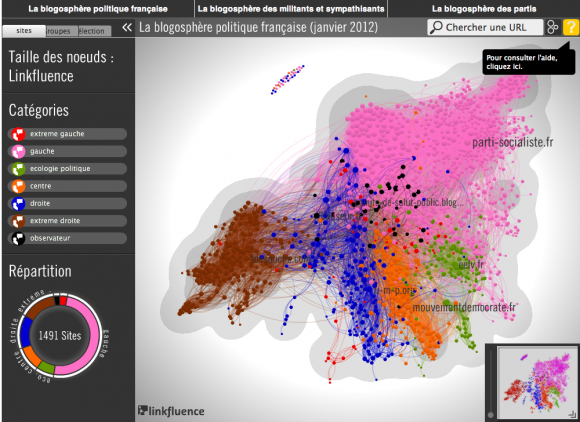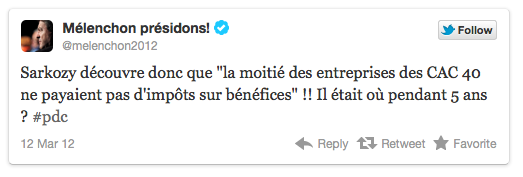Political blogs adapt to social media intensive 2012
By Aurelien Breeden
Social media is in, blogs are out, according to a recent Rue89 article entitled “RIP: the political blog is a state of clinical death.” The 2012 presidential campaign is supposedly social media oriented whereas the 2007 one relied more on blogs. But even though other news sites have reached similar conclusions, reality is more complicated than the piece suggests.
According to the Wiktionary, a blog is:
A website that allows users to reflect, share opinions, and discuss various topics in the form of an online journal while readers may comment on posts.
In other words, contrary to a social network, a blog is a static website, not a sharing platform. There is, of course, the ability to comment and link to other pages, but a blog does not enable you to share and interact as quickly, easily and seamlessly as social media do. This post considers only political blogs, i.e. blogs by politicians, activists, sympathizers or netizens that deal with politics.
Today, political blogs are at a disadvantage:
- Social networking websites like Facebook and Twitter are much more widespread today than they were five years ago. There were barely 4 million French Facebook users in 2007; today there are nearly 25 million. This means that candidates eager to reach out towards voters online are going to target these social networks first, and that political junkies who used to or still blog have taken to social media to spread their message. Social media are also much more suited to the rapid-fire, back and forth communication wars that campaigns wage against each other. Here are a few examples:
(With Hollande, the lack of credibility is permanent!)
(Nicolas Sarkozy president of the rich people’s union this morning on France Inter)
(Sarkozy discovers that “half of CAC 40 companies don’t pay taxes on their profit” !! Where was he the past five years?)
- Pure player (web only) news sites are now firmly established and have copied the blog format. Rue 89 was created right after the second round in 2007, back when neither Mediapart nor the Huffington Post.fr existed. The traditional media wasn’t as interested in blogs, whereas most news sites today have dedicated sections for blogs or host blogging platforms (for instance, the following article on French magazine website L’Express - which also details the decline of blogs in 2012 – was wrote on a dedicated blogging section called Express Yourself ).
But despite these changes, the political blog is not a dying breed. Social web think tank Linkfluence and LeMonde.fr collaborated to create the following cartography of political blogs, which shows how prevalent they still are (click on the image to access the application).

There have been many blogger reactions to the Rue89 article, underlining the democratic virtues of having independent voices online and the importance politicians still grant to blogs, as exemplified by campaigning platforms such as toushollande.fr for Hollande or the “Toile Bleu Marine” for Le Pen, or even individual blogs like Jean-Luc Mélenchon’s. This blogger says that only the crème de la crème remain, and that only the political blogs with uninteresting content were weeded out. Another one explains how political blogs may not be as suited for campaigning in the era of social media, but that this does not mean there are obsolete in the long-run.
The over-arching argument is that social media now have better visibility than blogs and are more suited for campaigning, but that political blogs still exist, are complementary to social networks (you promote your blog on Twitter, for instance) and enable longer, more constructed debates. Blogs are also an anchor in the fast-paced world of social media. Tweets and statuses have to be strategically posted to reach an audience less they drown under the onslaught of never ending updates. A blog post follows a less chaotic temporality and is easier to find. It is on her blog, for instance, that a Belgian journalist posted a very critical article on her French colleagues that was then picked up by the French media.






0 Comments
Post new comment